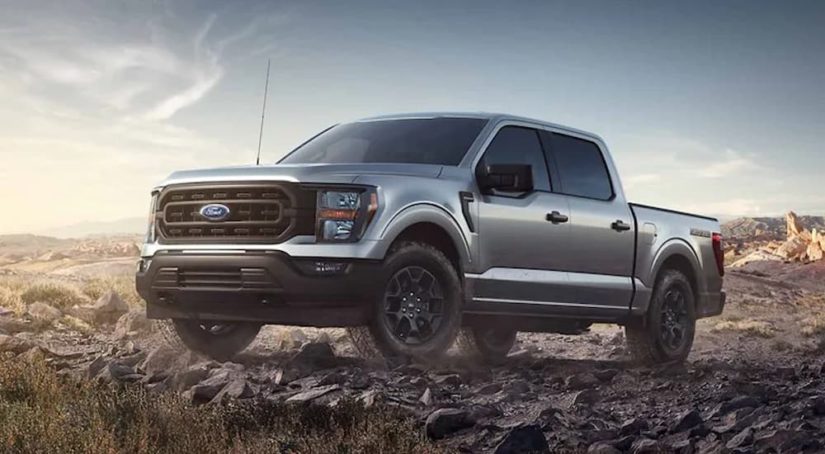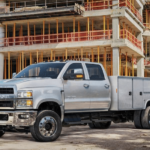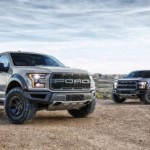The moment you’ve been waiting for has finally arrived––it’s time to go look for a new or new-to-you truck. With a general idea of what you want, you search for a truck dealer. As you continue to look, however, you start getting bogged down amid a slew of photos, specs, optional packages and accessories, and more. You begin to lose the excitement you had, and it doesn’t feel very fun anymore.
Has this happened to you? If it hasn’t, it might, and if you’ve already experienced it, looking for a new or new-to-you vehicle might be something you now dread. So how do you keep yourself from getting stuck in the technicalities and compiling an absurd amount of information only to throw up your hands in frustration as the numbers begin to swim together in a sea of confusion? Well, we’re here to help. There are definitely things you want to keep an eye out for when purchasing a vehicle, whether new or used, and there are things that can be considered less important, though that will vary from person to person. The list below provides you with the biggest things you should look for when buying a truck, whether you’re a seasoned veteran or a brand-new pickup enthusiast.
#1: Performance
When you’re in the market for a truck, one of the most important things you can look at is the vehicle’s performance, a catch-all term that includes information on the powertrain, drivetrain, and other mechanical features, like the kind of brakes or shock absorbers that come standard with the specific vehicle you’re eyeing. How much power do you actually need? How will that impact the miles per gallon, and how much horsepower and torque are you getting? Will you be using it for heavy-duty jobs, lighter work for your business, or as a family-friendly off-roader? Do you want a gas-fueled engine, a diesel-fueled engine, or a hybrid? It’s ok if all these questions make your head spin––it’s a lot of information to gather, especially if you’re interested in purchasing sooner rather than later.
All of these questions can be boiled down to how much power you need. Think about what you’ll be using the truck for, and then check the type of powertrain. Will it be sufficient for what you need it to do? Does it have additional or optional equipment that would boost its performance? From there, your field of choice becomes a lot more manageable.
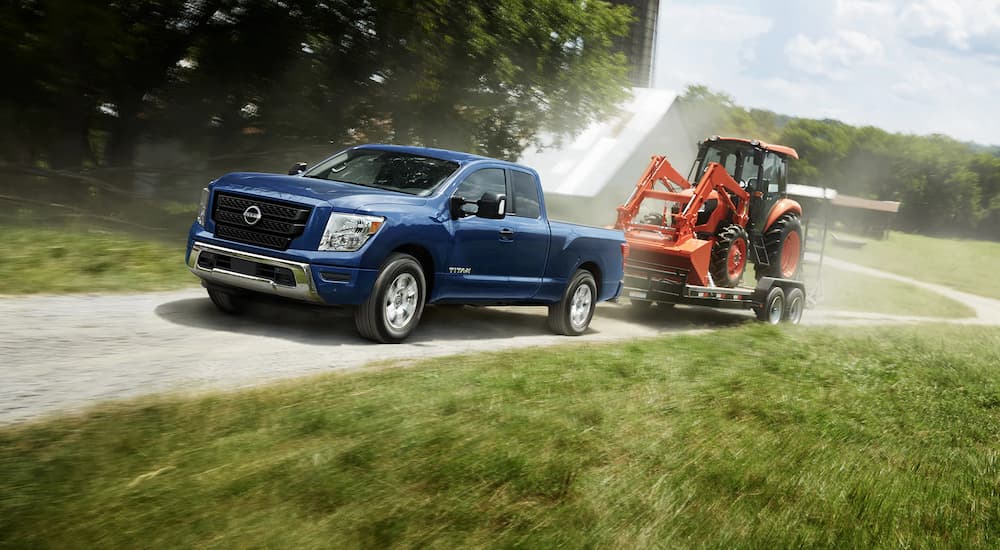
#2: Flexibility
Listen, we could all be a little more flexible, but everyone has their limit. The same is true for trucks––some are built for specific purposes, and some are built to be generally helpful in a variety of ways. Knowing what you can expect from your truck is a great way to narrow down your choices to the type of truck you know will be able to flex a little here and there to ensure you’re getting the best fit. Not interested in going off-road? Time to strike the Ford F-150 Raptor from the roster. Need something light that can still haul the occasional appliance? You can probably delete the Chevy Silverado 2500 and 3500 HD, Nissan Titan XD, and the Ram 2500 and 3500 off your list.
Knowing how far your vehicle can stretch from one task to another is an important piece of information, so don’t be afraid to ask a sales associate what they would recommend. Simplify your list by noting a few of the things you’d like to do with your new truck, and search for vehicles that function well in all those areas.
#3: Safety
Safety might sound like the least interesting part of the process, but if you’re going to be driving a truck for the first time, there are different issues navigating the road or when you’re off the beaten path that you may not know about yet. Vehicle height, tire size, width, and length all make a difference. Even if you’ve driven pickups your entire life, each truck is unique, so being able to count on your vehicle to assist you in changing lanes, avoiding collisions, or backing up with a trailer is pretty important after all.
Which safety features have you found the most helpful? Which do you think you would benefit from? Standard safety features often include a lane change alert and assist system, automatic emergency braking, blind spot monitoring, rear-cross traffic alert, and adaptive cruise control. Do you need help navigating parking with a camper, boat, or trailer? Then you will need to pick a truck like the Ford F-150 or the Ford Ranger. What if you need something that can help you avoid collisions in the city? The Ford Co-Pilot360, available on many models, is something you’ll want to jot down on your must-have list.
#4: Warranty
Many individuals choose to forego an in-depth conversation about warranties because they don’t want to consider the possibility that something might go wrong. While it isn’t a helpful practice to dwell on potential future disasters, it is a good idea to double-check warranties and what’s available. Live in an area where you’re more likely to see corrosion occur? Ford has a warranty for that. Wondering about what happens in the event of a malfunction with a safety restraint? Ford has a warranty for that as well. Some warranties may automatically be included in the purchase of your vehicle, while others will need to be added on.
The easiest way to parse through these is to think about where you’ll be driving, and the potential situations you’ll encounter throughout the year. Do you think you’ll use any additional warranties? If you know you will most likely want an additional one, that narrows down your choice of truck even further. Ford includes two warranties with the purchase of one of their vehicles: the new vehicle limited warranty, which lasts three years or 36,000 miles and can be utilized if a factory part needs replacing, adjusting, or repair, and the powertrain warranty, which lasts five years or 60,000 miles, and is used when engine and transmission parts need to be fixed.
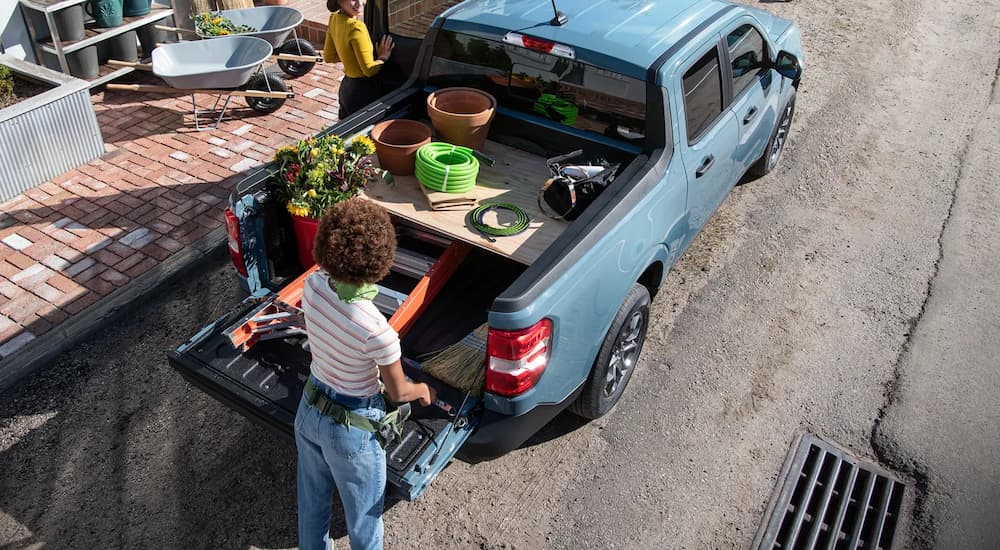
#5: Reputation
Nothing beats word of mouth. You can read all the information available on the internet and still not know how it feels to press your foot to the gas pedal, how much space the truck has vs how the space feels, or how it reacts in inclement weather. Just because they all roll off of a factory production line doesn’t mean they are all the same. Each one is just a bit different, and only by first or second-hand experience will you really get a feel for how a particular truck operates. Do you have a friend or family member that has driven Ford trucks for the past fifty years? What about a cousin who just bought a Ford F-150 a few months ago? Maybe you could talk to a co-worker about their experience with the Ford Maverick or Ranger and see how it drives for them.
There may not be a complete consensus on the brand or the particular truck, but you will get a feel for how others perceive their vehicles, what they use them for, and any issues they’ve had in the past. It’s also a great way to find a truck mechanic and other resources so that you can keep your pickup in tip-top shape and decked out with all the latest technology and accessories. If you’ve heard a lot about the Ford F-150, it’s because it is the best-selling truck and the best-selling vehicle overall in the United States, so it stands to reason that many will tell you how much they love it and encourage you to look at one as well.
Keep Your List Short and Simple
When you’ve embarked on your quest to find your next pickup, keep it simple. How much power do you need, and is there an option to boost it? What tasks can it handle? Does it have the safety features you need in order to perform these tasks? Do you need any additional warranties? What have you heard about specific models from people who have had experience driving, hauling, and towing with these pickups?
Now, instead of being overwhelmed with pages and pages of information, you can search specifically for what you want. You know you best, and you can narrow down what you’re searching for so that, in the end, you’ve only got a half dozen or so vehicles that fit the bill. Remember, you can search dealership inventories online, so you can see what’s available before you drive around trying to find the specific model, year, and make. You can also compare trucks side by side, although there is one brand that towers over the others––you guessed it, America’s favorite truck brand, Ford. With plenty of options to choose from, you won’t have to venture far to find your new favorite pickup.
